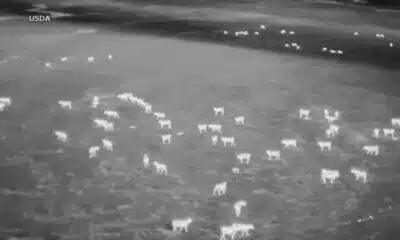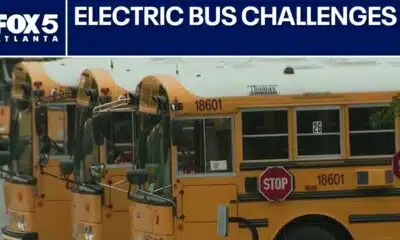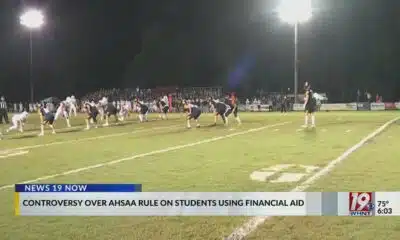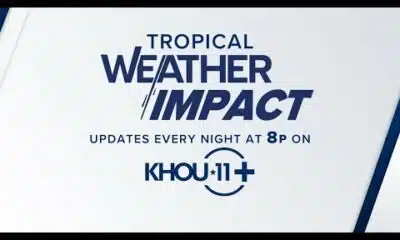News from the South - Florida News Feed
Crash near Reagan sparks debate over air traffic risks and airport expansion • Florida Phoenix
Crash near Reagan sparks debate over air traffic risks and airport expansion
by nathaniel cline, Florida Phoenix
February 1, 2025
The deadly mid-air collision over Washington, D.C., has reignited concerns over air traffic congestion and safety risks at Ronald Reagan Washington National Airport, a tightly packed aviation hub that shares airspace with military and government flights.
An American Airlines Bombardier jet, carrying 60 passengers and four crew members, collided with an Army Black Hawk helicopter before crashing into the Potomac River while preparing to land at the East Coast hub Wednesday evening.
Reagan National, a tightly packed aviation hub that shares airspace with military and government flights, is the busiest airport among Virginia, Maryland, and Washington D.C. The incident has drawn renewed scrutiny to the airport’s location, its restricted airspace, and the heavy volume of helicopter traffic around the Pentagon, White House, and Joint Base Anacostia-Bolling.
Its proximity to the capital and especially the heavy volume of helicopter traffic complicates air traffic control and increases the risk of mid-air collisions, said William McGee, senior fellow for aviation and travel and American Economic Liberties Project.
“It is a really challenging place to operate,” said McGee. A former federally licensed dispatcher, he noted that Reagan’s tight airspace, heavy traffic, and short runways make operations especially complex.
From above, Reagan National sits between Virginia and Washington, D.C., separated by the Potomac River, forcing pilots to navigate a narrow corridor alongside military and commercial aircraft.
The airport’s runway is just 5,200 feet, far shorter than the 7,000 to 15,000 feet found at most major U.S. airports. Large aircraft like jumbo jets would require significantly more space to land safely, adding to the risks, McGee said.
Restricted airspace
For decades, the federal government has tightened airspace restrictions around Washington to prevent aircraft from crashing or landing near high-risk areas like the Capitol, White House, and National Mall.
Following the 9/11 attacks, when terrorists hijacked a plane and crashed it into the Pentagon — just 3.5 miles from the White House — officials established a 17-mile flight-restricted zone around the airport to control the airspace and limit access to commercial and government flights.
Despite these measures, Reagan’s approach corridor remains one of the busiest and most complex in the country, requiring pilots to perform a challenging maneuver before landing. The Washington Metropolitan Airports Authority (MWAA) reported in November that Reagan handles 380 domestic flights daily, up from 374 last year.
Lawmakers often rely on Reagan’s close proximity to Capitol Hill over alternatives like Dulles and Baltimore-Washington International, both more than 30 miles away. However, with passenger traffic surging from 15 million to over 23 million annually, some — including Virginia Sens. Tim Kaine and Mark Warner — have raised concerns about whether the airport can handle more flights.
In response to growing demand, the airport authority has launched a $1 billion multi-year expansion project to accommodate rising passenger volumes. The airport has also expanded TSA security checkpoints to address congestion in the gate areas.
In May 2023, lawmakers approved a plan to add new flights under the FAA Reauthorization Act 2024, which includes provisions to expand passenger airline service, accommodate new airspace users, and reform regulatory oversight within the agency.
American Airlines began offering flights from Dwight D. Eisenhower National Airport in Kansas to Washington, D.C., a year ago. However, the direct Kansas-to-D.C. route was not among the five flights added under the act. Instead, the airline was granted authorization for one additional round-trip flight under the law, operating between San Antonio, Texas, and Washington, D.C.
Lawmakers and passengers welcomed the new flights in 2023, viewing them as an expansion of travel options.
However, Kaine and Warner have consistently opposed increasing flights at Reagan National Airport, arguing the facility is already overburdened and that additional traffic poses an “enormous risk to passenger safety” while contributing to “alarming delays.”
‘… at the appropriate time’
At a press briefing Thursday, Warner, Kaine, and U.S. Rep. Don Beyer, D-Va., did not reiterate their concerns about airport congestion, instead focusing on supporting families affected by Wednesday night’s crash and ensuring a thorough investigation.
“We have raised this issue continuously. We’ve got very busy airspace,” Warner said on Thursday. “I think we will ask questions, but at the appropriate time.”
Kaine added, “We’ve been pretty plain about our concerns, but it isn’t a good time to speculate right now. We have faith that the NTSB will provide the answers about this here.”
Since 1964, Reagan National Airport has recorded only two non-fatal aviation incidents, according to National Transportation Safety Board (NTSB) records. In total, the agency has investigated 1,290 cases in Virginia, including four in Arlington — most notably the Sept. 11, 2001, attack on the Pentagon.
More recently, Reagan has faced increased scrutiny. The Federal Aviation Administration (FAA) is investigating a May 29, 2024, runway incident in which two planes nearly collided. FAA records show that an air traffic controller at Reagan canceled the takeoff clearance for an American Airlines flight because another aircraft was cleared to land on an intersecting runway.
With lawmakers continuing to push for increased flights at Reagan, consumer advocates argue that Wednesday’s crash must serve as a wake-up call for stronger safety measures.
“It is critical to reevaluate flight patterns, air traffic control resources, and safety protocols,” the National Consumers League said in a statement. “To restore passenger trust in air travel, we need a thorough, transparent investigation into this tragedy, along with a concrete plan to address the underlying issues of congestion and air traffic control shortages.”
John Breyault, the league’s vice president of policy, echoed these concerns. “While investigations will seek to determine the precise cause of this crash, one thing is clear — we must not wait for another catastrophe to make air travel safer.”
This story first appeared in the Virginia Mercury, a member with the Phoenix in the nonprofit States Newsroom.
YOU MAKE OUR WORK POSSIBLE.
Florida Phoenix is part of States Newsroom, a nonprofit news network supported by grants and a coalition of donors as a 501c(3) public charity. Florida Phoenix maintains editorial independence. Contact Editor Michael Moline for questions: info@floridaphoenix.com.
News from the South - Florida News Feed
Polls to open in Florida Senate, House special elections. How to find out if you should be voting
SUMMARY: Election Day in west Orange County, Florida, on Tuesday features special elections to fill two Florida Legislature vacancies in Senate District 15 and House District 40. Senate District 15 includes northwest Orange County areas like Winter Garden and College Park. The seat was vacated by the late Sen. Geraldine Thompson. Democratic State Rep. Bracy Davis faces Republican Willie J. Montague for the Senate seat. In House District 40, RaShon Young, Davis’ former chief of staff, won the Democratic primary and will compete against Republican Tuan Le and write-in Chris Hall in the Sept. 2 general election. Polls open 7 a.m.–7 p.m.; vote-by-mail ballots are due by 7 p.m.
The post Polls to open in Florida Senate, House special elections. How to find out if you should be voting appeared first on www.clickorlando.com
News from the South - Florida News Feed
Here’s what we know about COVID shots in Florida
SUMMARY: In Florida, confusion grows over COVID-19 vaccine access. Jen, a Tampa resident with an underlying condition, struggles to find vaccination sites despite consistent annual shots. Pharmacies like CVS now require prescriptions for vaccines in 16 states, including Florida, while Walgreens limits availability. The FDA approved the 2025/26 vaccine mainly for those 65+, requiring high-risk younger individuals to have prescriptions. Florida Surgeon General Dr. Joseph Ladapo opposes the vaccine, calling it unsafe. This hesitancy contrasts federal messages supporting choice, as CDC advisory meetings may soon clarify guidelines amid politicized debates. Many Floridians remain uncertain about vaccine availability and eligibility.
The post Here’s what we know about COVID shots in Florida appeared first on www.tampabay28.com
News from the South - Florida News Feed
Scattered showers in South Florida for Labor Day
SUMMARY: South Florida is experiencing scattered showers and storms on Labor Day, with temperatures around 85°F but feeling like the upper 90s. Showers are moving west to east, affecting areas like Key West, Miami Beach, and North Miami, while Fort Lauderdale remains clear for now. A stalled frontal boundary and low pressure are pumping moisture into the region, keeping rain chances elevated at 50-60% through the week. Flood threat is low but present, especially in metro areas. Conditions will improve briefly in the afternoon, with unsettled weather continuing into the week. A tropical wave near Africa has a 40% chance of developing soon.
NEXT Weather meteorologist Shane Hinton takes a look at what to expect.
For video licensing inquiries, contact: licensing@veritone.com
-
Mississippi Today2 days ago
DEI, campus culture wars spark early battle between likely GOP rivals for governor in Mississippi
-
Mississippi Today6 days ago
Judge: Felony disenfranchisement a factor in ruling on Mississippi Supreme Court districts
-
News from the South - North Carolina News Feed5 days ago
Parasocial party: Why people are excited for the Taylor Swift, Travis Kelce engagement
-
News from the South - Louisiana News Feed5 days ago
K+20: Katrina alters local health care landscape, though underlying ills still the same
-
Mississippi News Video7 days ago
Today’s First Alert Weather Kid is Karson (8/26)
-
Our Mississippi Home7 days ago
Katrina Remembered: A Hattiesburg Perspective
-
News from the South - Georgia News Feed7 days ago
Masters Tournament announces changes to qualification criteria
-
Local News6 days ago
Parents of missing 7-month-old California boy are charged with murder








































